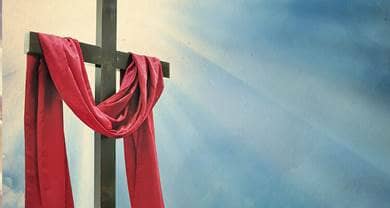- Trending:
- Pope Leo Xiv
- |
- Israel
- |
- Trump
- |
- Social Justice
- |
- Peace
- |
- Love

RELIGION LIBRARY
Baptist
Founders
John Smyth (c. 1565 - 1612) studied theology at Cambridge University, where he became a fellow of Christ's College. He was ordained into the Church of England in 1594 and served at Lincoln Cathedral. In 1602, he was dismissed from Lincoln for "personal preaching," or preaching that was regarded as subversive to the church, and soon took up pastoral ministry at a Separatist church in Gainsborough. As a result of persecution, he fled to Amsterdam in 1606, remaining there until his death in 1612. While in Amsterdam, he baptized himself ("se-baptism") and then his followers, mostly from England, founding what is usually regarded as the first English General Baptist church.
Thomas Helwys (c. 1570 - c. 1615), a gentleman farmer and lawyer, was a friend of John Smyth from his days in Lincoln, and joined him in fleeing to Amsterdam in 1606. After leaving England, the government arrested his wife and claimed all of his real estate and other financial holdings. Helwys was among those whom Smyth baptized and who then became members of the church that Smyth led. Unlike Smyth, Helwys had serious reservations about the theology, particularly the view of Christ, held by the Waterlander Mennonites. Helwys eventually led a small group back to England, where, in 1612, they established the first Baptist church in England.
John Spilsbury (1593 - c. 1668) was a cobbler and member of an English Separatist church. Calvinist in his theology (particularly with respect to salvation), he undertook the study of baptism and came to the conclusion that baptizing infants was wrong and that only adult believers' baptism was valid. Around 1633 he left the church he was in, was baptized, and went on to establish and serve as pastor of what is regarded as the first Particular Baptist congregation. Continuing to study the matter of baptism, Spilsbury and other Particular Baptists concluded that immersion (that is, completely submersing the person in water) was the proper mode.
As a young man, William Kiffin (1616 - 1701) worked as a brewer's apprentice and went on to become a successful woolen merchant who traded extensively with the Dutch. Astute in political and social matters, he applied his financial resources to a variety of causes. Around 1638, Kiffin was baptized and joined the Particular Baptist church of which John Spilsbury was pastor. From 1653 to 1692, in addition to continuing his wool trade, he served as pastor of a Baptist church in London. Kiffin was one of the most prominent and articulate proponents of the Particular Baptist cause in public and political arenas. He was also theologically learned, being one of the primary authors of the London Confession, a statement of faith that continues today as a landmark in Baptist theology.
Francis Bampfield (1615 - 1684), a graduate of Oxford, remained loyal to the monarchy and to the Anglican Church when the Puritans asserted themselves in the middle of the 17th century. By the early-1660s, however, Bampfield had a change of heart and mind, and was imprisoned for nine years for refusing to take an oath of allegiance to the crown. It appears that he came into contact with and embraced Baptist Christianity while in prison, for he obtained a license to preach after being released and several years later established a Seventh Day Baptist church.
Roger Williams (c. 1603 - 1683) graduated from Oxford in 1627, and was ordained in the Anglican Church shortly thereafter. Within two years, Williams had embraced Puritan Separatist views. He immigrated to the Massachusetts colony, and there served as pastor of churches in Plymouth and Salem. However, he came to hold two views that placed him at odds with the Puritan leadership. Williams regarded Native Americans, not the British monarchy, as the rightful owners of the land where the Puritans were now living, and believed that the native peoples should be paid accordingly. Second, he embraced what became the Baptist principle of individual conscience. Individual persons are responsible directly to God, not to a civil authority, for their religious beliefs and manner of life.
As a result of his commitment to these principles, Williams was exiled from Massachusetts in 1635. He travelled south and, purchasing land from the Narragansett tribe, created Providence Plantation as a home for people seeking freedom of individual conscience. This became the center of Rhode Island colony and the site of the first Baptist church in America, founded by Williams and others around 1638. His work constituted an essential part of the foundation of genuine religious liberty in the United States. Williams eventually left the Baptist tradition and pursued an even more individualistic approach to faith and conscience.
Finally, Dr. John Clarke (1609 - 1676) was a person of many talents, working professionally at various times in medicine, law, and Christian ministry. Born in Suffolk, England, he immigrated to Massachusetts in 1637. As a result of persecution by Puritans, he moved southward and helped to found Newport, where he then established a Baptist congregation around 1648. In conjunction with Roger Williams, Clarke led in the formulation and establishment of royal approval for the Charter of Rhode Island (1663), which contained extensive provisions for freedom of conscience, including religious conscience.
Study Questions:
1. Who was John Smyth? What was his role in the founding of the Baptist tradition?
2. Who was Thomas Helwys? What was his relationship to Smyth?
3. How did John Spilsbury’s work modify the practice of baptism?
4. Who was William Kiffin? Francis Bampfield? Why are they notable in the history of Baptists?
5. What Baptist founders were influential in the New World? Describe their contributions.










